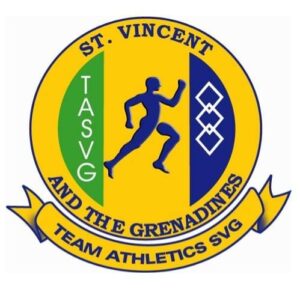SVG Football – Pending Challenges
There are some sporting organisations in St Vincent and the Grenadines that attract much attention once their elections for a new executive is pending.
Many of the national sports associations in St Vincent and the Grenadine shave followed their respective international. Federations (IF) into having a four-year term of office for their executive committees. Netball is perhaps one of the few associations that still maintain a two-year term of office, a feature that poses numerous challenges.
In the case of football, each time that elections come around, there appears to be no shortage of challenges that emerge, many of which engage the interest of the local media.
FIFA’s firm hand
Interestingly, the role of the international governing body for football, FIFA, has come under scrutiny in different parts of the world for several reasons.
In neighbouring Trinidad and Tobago, for example, FIFA imposed itself in 2020, after it had determined that “extremely low overall financial management methods, combined with a massive debt, have resulted in the TTFA facing a very real risk of insolvency and illiquidity. Such a situation is putting at risk the organization and development of football in the country and corrective measures need to be applied urgently.”
FIFA sought and eventually put in place, a ‘Normalisation Committee” to oversee the sport’s administration until it was satisfied that enough work had been undertaken to facilitate a return to all football matters in the hands of the TTFA.
The TTFA had initially sought to fight the FIFA decision in the national court in Trinidad and Tobago, only to find itself suspended by FIFA for failing to adhere to its own constitution that specifically indicated that such disputes must be taken to the Court of Arbitration for Sport (CAS) generally seen by IFs as the final court of appeal for their respective sport’s matters.
The FIFA statement read, “The decision of the former leadership to go to a local court to contest the appointment of the normalization committee jeopardizes not only the future of football in Trinidad and Tobago but also endangers the overall global football governance structure, which relies on the Court of Arbitration for Sport (CAS) as the exclusive forum for resolving disputes of this nature.”
It should be noted that FIFA’s seemingly firm hand in respect of the administration of the sport globally, has emerged following its own international scandal of several years ago that saw several of its executive members being hauled before the courts for corruption while serving the institution.
“Together, the FBI and IRS coordinated with police agencies and diplomats in 33 countries around the world to uncover a widespread international case of bribery and kickbacks, all linked to FIFA officials. In 2015, 14 FIFA officials and marketing executives were indicted by the U.S. Department of Justice. Officials were arrested in Switzerland and extradited to the United States, where they were charged with wire fraud, racketeering, and money laundering.
“The Justice Department documented over $150 million in bribes and kickbacks paid to FIFA officials. Investigators found that American banks were used in the process, allowing prosecutors to bring the case to American courts. These payments did not include millions of dollars in other possible bribes paid outside of U.S. banks. Blazer cooperated with U.S. prosecutors and provided details about the bribery, including a $10 million bribe paid by the South African government to host the 2010 World Cup.
“The investigation found evidence of bribery dating back to the 1990s. Bribes also included deals related the sale of broadcasting rights, merchandise, and sponsorship.”
(https://ethicsunwrapped.utexas.edu/video/fifa-kickbacks-world-cup-corruption)
Interestingly, despite the apparent widespread nature of the corruption evident in FIFA, the International Olympic Committee (IOC) nor any other major international sport organisation ever engaged in a frank discussion on the sport of football, seemingly because of its global appeal. None of the sport’s major sponsors commented nor did any seek to leave the sport, again, because of the lucrative nature of the benefits they independently achieve because of their association with the sport.
Today, however, FIFA seems to be policing its members more deliberately than hitherto. But the sport is nonetheless still very much maligned for the failure to adequately put an end to the despicable behaviour of fans when it comes to racist chants and related actions against players of colour, at almost all levels of the game.
The SVG situation
Vincentian football was caught up in the football scandal that unfolded at a CONCACAF meeting held at the Hyatt hotel in Port of Spain, Trinidad, some years ago, when the twin-island Republic was the country of choice for a meeting with then FIFA Presidential candidate, Bin Haman. It was at that meeting that member federations in attendance were each provided with cash to the tune of $40,000 USD. Some immediately returned the cash while others did not. Others found themselves in receipt of different punitive measures including suspension.
FIFA also appeared at the time to have had a policy in place that left individuals who had left the sport, due to resignation or otherwise, may have been outside their remit. One individual from St Vincent and the Grenadines received a suspension.
Later, there was a matter directly involving the Federation which led to the then President being fined and suspended.
The current situation of the SVGFF is that it has been in receipt of support from FIFA to assist with the procurement of its own facility and lights for several playing fields that it uses for competitions.
The visit to this country by FIFA President, Infantino, was on of mixed fortunes and may well have exposed, to some extent, the government’s continued lack of understanding of sport beyond being an opportunity to pursue the youth vote. In any events, the SVGFF must wait until it has its own home to be able to wield the kind of control of the sport that is required for the genuine development of the sport.
The SVGFF, since it uses several of the existing playing fields to facilitate training and competition, may do well to provide some of the lighting needed to allow for games both training and games to be played well into the night, allowing for continued growth in the sport across the country.
The SVGFF has finally been able to commence work on the development of a club structure for the sport, as required by FIFA.
In the early 1990s, when the then President of the SVGFF, Adrian Fraser, attempted to introduce a club structure for the sport, there was great resistance led by. The long-established clubs based in and around Kingstown. At the time, Kingstown clubs literally controlled football and successfully maintained that position until FIFA’s insistence forced the major changes that are now in place.
Some would suggest that everything takes time. Unfortunately, for football in St Vincent and the Grenadines it took far too long for the SVGFF to fall in line with FIFAs requirement for a club structure. Happily, the process is on the way but well short of what is generally expected. It is a work in progress.
Importantly, the work being undertaken by football in respect of the development of club structures could very well serve all national sports associations. The retention of teams, generally loose sport organisations, is untenable if we are to have better administrated and sustainable associations. There is nothing wrong with sharing best practices and programmes.
Pending elections
Elections are due and it comes as no surprise that there is evidence of significant interest in sitting on the SVGFF’s executive. This may well be a sign of the development of the organisation and of the sport itself. Indeed, this may well be the most admirable objective of the institution.
The recent announcement that FIFA has insisted upon the delay of elections because of the hiccups with the constitution is a sort of ‘fly in the ointment’.
If the constitution is changed then the latest approved constitution must be the one used to conduct the affairs of the organisation with immediate affect. It is therefore necessary that all matters relating to the election of officers of the SVGFF adhere to the most recent edition of the constitution of the organisation. That is what FIFA is insisting upon and is clearly consistent with the norms of good governance.
The delay is therefore understood.
But there may well be another reason for the large number of persons interested in sitting on the organisation’s executive. FIFA’s global sport competition programme renders the international federation one of the most financially successful institution, boasting a significant array of highly successful sponsors and partners.
FIFA spends much of its revenue giving back to its member federations, financially and otherwise. It is a known fact that several years ago FIFA decided to allow it member federations to provide payment to their executive members. This follows FIFA’s own payment of its Council members.
“The FIFA Council Senior Vice-President and Vice-Presidents who are also confederation presidents each receive a net annual compensation of USD 300,000 (USD 300,000 in 2021). FIFA Council Vice-Presidents who are not confederation presidents and FIFA Council members each receive a net annual compensation of USD 250,000 (USD 250,000 in 2021). The net compensation may vary depending on the taxation situation of the individual Council member. Individual Council members voluntarily waived some or all of their compensation during their term of appointment. Each member also receives a daily allowance while on duty of USD 250, or USD 150 if FIFA covers breakfast and lunch or dinner.” (https://publications.fifa.com/en/annual-report-2022/governance-2022/compensation-2022/)
The FIFA President receives approximately $1.9m USD per year while the General Secretary receives $1.3m USD, gross, per year.
Not surprisingly therefore, the monies flowing to national football federations are significant and makes the member federations financially buoyant.
The SVGFF therefore stands alone amongst national sports associations in St Vincent and the Grenadines when it comes to paying its executive members. No other national association pays executive members at any level.
FIFA, a not-for-profit organisation continues to support its member federations financially and will do so for the foreseeable future.
The SVGFF is capable, should it develop a strong, professional administrative structure and cadre, adhering to the fundamentals of good governance – transparency and accountability, could readily become a model national sport organisation. But this depends on the extent to which the member clubs, also structure themselves administratively, also adhering to the good governance principles, render themselves good examples. Football has the capacity and resources to lead the process of sport development in St Vincent and the Grenadines.




